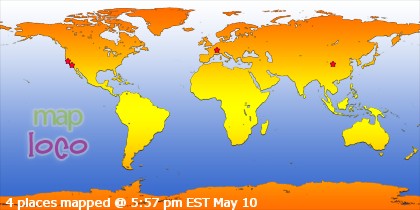Veterinarian's life was defined, and almost ended, at the zoo
Monday, May 19, 2008MICHELLE TRAPPEN The Oregonian Staff
BEAVERTON -- The white-haired man rises from morning coffee, pushing hard on his cane, summoning his 90-year-old legs to stand.
The time has come to explain his life -- beyond Packy, the beloved elephant he delivered 46 years ago at today's Oregon Zoo.
Matthew Maberry has never been much of a talker. A smart farm boy reared in a small Washington town, the Beaverton man would rather be lost in books or outside among animals.
He's doctored people's pets, resuscitated a whale, survived five kinds of animal herpes and done groundbreaking zoological work.
Now three groups have awarded him lifetime achievement honors: the Oregon Veterinary Medical Association; the Metro Council, which operates the Oregon Zoo; and his alma mater, Washington State University.
Recently his powerful testimony before the Metro Council helped put a $125 million bond measure for zoo improvements on November's ballot.
Long after the public applause that followed Packy's birth, Doc Maberry's back in the spotlight.
He expects to begin with Packy, his biggest claim to fame, the first elephant born in the Western Hemisphere in more than 40 years. Or with the 1962 Life magazine story that made Maberry nationally known.
Instead, the vet -- who wears his usual dark slacks, a cable-knit cardigan and a Pendleton shirt with two pockets to cradle reading glasses, a comb and two pens -- is asked to backtrack to his birth in 1917.
"I always thought farm life was going to kill me, but it didn't," says Maberry, who rose at 4 a.m. daily to help milk 100 cows on a dairy farm in Sequim, Wash.
A natural scholar, he always carried a book in his pocket. He wanted to be a doctor, but the medical school at Washington State University rejected him because his family couldn't afford tuition.
When the veterinary school accepted him, he fell back on his second love:
Animals.
Smartly dressed Pat Maberry bustles into the living room.
The husband smiles at his wife, 25 years his junior. She's the one who transformed him from a workaholic social loner into a dedicated husband.
She did it when he needed love most: after the Packy hype; after a monkey-transmitted herpes virus almost killed him; after zoo politics, and his illness, forced him to resign from the zoo.
"The high point in my life was when I married Pat," says Maberry, who married his first wife and fathered two children while in veterinary school. His daughter, Sondra, now 63 and afflicted with cerebral palsy, grew up in a state institution. His son, Wake, now 61, grew up with his mother and rarely saw his busy father.
Pat, not her husband, mentions his brief second and third marriages.
He offended Pat when they met in 1971. She took her poodle for a checkup at the zoo hospital, where the vet sometimes saw public clients. Brusquely, he opened the door, gave the dog a shot, asked a couple of questions then slammed the door.
"He was so rude," Pat says. "He had the bedside manner of a worm."
But when Maberry asked her to volunteer, for the zoo, she signed on. Two years later, she realized her love for the disheveled, cantankerous vet when Maberry bent a coat hanger into a cast for a stray cat with an injured foot. Immediately, the cat scampered around the zoo hospital.
They married in May 1975, when he was 58 and she 32. Nine people attended their secret wedding.
"I didn't realize how famous he was until I went to get the marriage license," Pat says. "The clerk asked me: 'Is this the Dr. Maberry who delivered Packy?'
"When I said yes, she told me we didn't want the announcement in the newspapers.
"She knew the public would be all over it."
In 1958, after a decade in private practice, Maberry went to work full time as the city of Portland's veterinarian, a job that included tending animals at what was then the Washington Park Zoo.
Immediately, Maberry realized he had a medical mess on his hands.
"I told the zoo director that the only thing holding this place together is the smell," Maberry says.
Tuberculosis raged. The gate to the bear grotto was rusted shut. Keepers had to jump the fence and wait to clean until bears moved to the far end.
Animal sedatives, beyond chloroform, didn't exist. To treat an animal, Maberry and a team had to lasso it and hold it down.
Little changed until Portland voters passed a bond for a new zoo, which opened in 1959 in its current location as the Portland Zoological Gardens.
That's when elephants lumbered into his life.
Like the majority of vets in the early 1960s, Maberry knew little about Asian elephants born in captivity. Most breeding attempts had failed miserably.
He guessed how to doctor the pregnant Belle. His techniques, never tried on elephants before, have been further developed and are still common today, says Mike Keele, the Oregon Zoo's deputy director.
"It's really amazing what Dr. Maberry did," says Keele, who recently had Maberry coach elephant keepers in preparation for a baby due this fall, the first since 1994.
"He blazed a trail for zoos nationwide and around the world."
When Belle birthed Packy around dawn April 14, 1962, exhaustion and elation overwhelmed Maberry. An equally elated public swarmed the zoo in record numbers that weren't matched until 2001, Keele says.
Ten more elephants would be born on Maberry's watch , establishing Portland's zoo as the premier elephant-breeding facility in the United States.
The next decade flew by in a flash of notoriety.
Maberry spoke at local club meetings and at schools. Zoo experts picked his brain about elephant breeding. Schoolchildren mailed him hand-drawn fan letters, all of which he kept.
He kept busy, at the zoo and at sea. In 1967, he helped net one of the first killer whales in captivity. It still thrills him how he bobbed in the ocean eye to eye with the whale, "the most intelligent animal I've ever seen," he says.
He helped capture four young beluga whales off the Aleutian Islands. On the return airplane trip, one whale went into cardiac arrest, recalls Bob O'Loughlin, who was on that adventure.
"The good doctor became legendary at 10,000 feet," says O'Loughlin, who puts on trade shows aimed at consumer groups. The shows often feature animals.
"It was a sight to see, watching him give mouth-to-blowhole resuscitation to that whale."
In 1973 Maberry discovered -- too late -- that a newly acquired African green monkey suffered from a highly contagious herpes virus so destructive that all 60 animals then in the zoo hospital had to be euthanized.
Soon after, Maberry learned that he was infected with five types of herpes from different species of animals. But it was a baboon herpes, transmitted by the green monkey, that nearly killed him and confined him to bed for a year.
"It was the most painful thing you can imagine," Maberry says.
Deputy director Keele, then a 20-year-old animal keeper, says it was a rough time for the zoo because management passed from the city to the Portland Zoological Society. Twice in the early 1970s, under the leadership of director Philip Ogilvie, the zoo went bankrupt.
Seven months after Maberry became ill, Ogilvie asked for his resignation.
"I missed the animals," says the vet, who was so upset he didn't visit the zoo for 20 years. "It was all pretty sad."
On a recent sunny Saturday, Maberry stands above the small indoor seal pool at the Seaside Aquarium, shooting photographs he will study to detect disease or illness in the animals.
He keeps his distance.
"Touch them and you might lose an arm," says Maberry, who has been the aquarium's vet for 30 years.
At 90, two years after coming so close to death that Pat started making preparations, he still travels to the aquarium once a month to check on the seals.
Done with his duties, Maberry climbs into the car for the drive home. Pat at the wheel, their poodle, Zandy, on his lap, Maberry grins, considering his nine decades with animals of all kinds.
"I like elephants, giraffes, a lot of animals, really," he says. "The thing is, if you were ever around elephants, you'd fall in love with them, too. They're adorable and smart and gentle.
"I think every animal teaches you something about life."
Michelle Trappen: 503-221-4388; michelletrappen@ news.oregonian.com
Wednesday, May 21, 2008
The man who delivered Packy
Subscribe to:
Post Comments (Atom)














0 comments:
Post a Comment